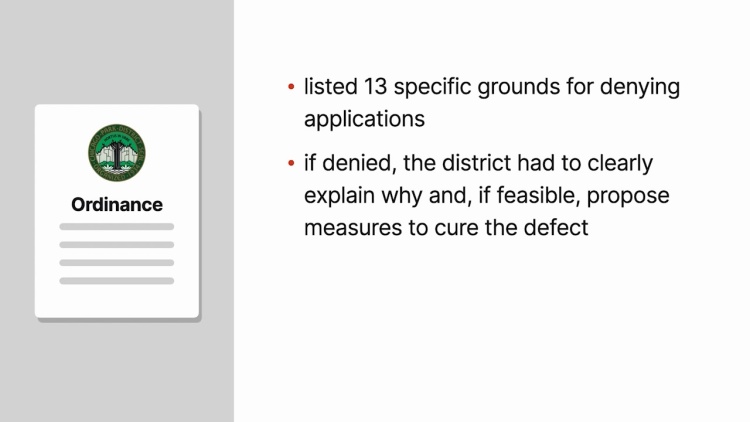Thomas & Windy City Hemp Development Board v. Chicago Park District
United States Supreme Court
534 U.S. 316 (2002)
- Written by Megan Petersen, JD
Facts
The Chicago Park District (defendant) was responsible for operating public parks and other public property in Chicago. It adopted an ordinance that required a person to obtain a permit in order to “conduct a public assembly, parade, picnic, or other event involving more than fifty individuals,” or to engage in any other activity creating amplified sound. The ordinance provided that applications for permits would be processed in the order in which they were received, and that the Park District was required to either grant or deny the permit within fourteen days of receiving the application unless it decided to extend the decision period for another fourteen days. Applications could be denied based on thirteen different grounds, but the Park District had to clearly set forth its reasons for a denial in writing. Unsuccessful applicants could file written appeals with the Park District within seven days of a denial. Thomas & Windy City Hemp Development Board (TWCHDB) (plaintiff) applied to the Park District on several occasions for permits to hold rallies advocating the legalization of marijuana. The Park District granted some permits and denied others. However, TWCHDB filed suit in district court under 42 U.S.C. §1983 on the grounds that the Park District’s ordinance was unconstitutional on its face. The district court granted summary judgment in favor of the Park District, and the court of appeals affirmed. The United States Supreme Court granted certiorari.
Rule of Law
Issue
Holding and Reasoning (Scalia, J.)
What to do next…
Here's why 907,000 law students have relied on our case briefs:
- Written by law professors and practitioners, not other law students. 47,100 briefs, keyed to 996 casebooks. Top-notch customer support.
- The right amount of information, includes the facts, issues, rule of law, holding and reasoning, and any concurrences and dissents.
- Access in your classes, works on your mobile and tablet. Massive library of related video lessons and high quality multiple-choice questions.
- Easy to use, uniform format for every case brief. Written in plain English, not in legalese. Our briefs summarize and simplify; they don’t just repeat the court’s language.





